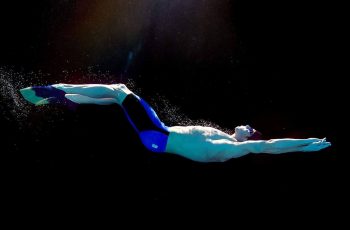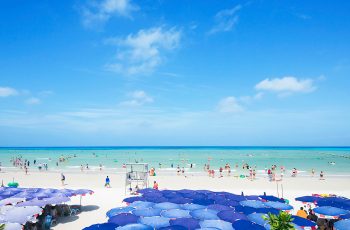A swimmer’s headache may be caused by a variety of reasons. It may be the type of goggles and swimming cap you wear, or fatigue, lack of oxygen, or even dehydration while swimming.
By discovering the different types of headaches experienced by swimmers, try to avoid headaches caused by swimming. But if your headache is not relieved by simple treatment, you should immediately see a doctor for help.
Here are some causes and solutions for headaches after swimming:
External Compression Headache (ECH)
This form of headache is the result of applied external pressure on one’s forehead and scalp. More specifically, it is the result of wearing tight goggles and swim caps. The duration of the pain lasts only within an hour after the pressure is released – or in other words, until the gear is removed. however, prolonged pressure may worsen the headache into a migraine.
How to avoid ECH:
–Invest in the right pair of goggles
For competitive swimmers who use standard competition goggles, you can limit the time to wear the equipment or loosen the straps. However, if loosening the straps is not ideal for you, look for goggles with different strap styles. Make sure you buy a pair of shoes that are leak-free and comfortable on your head.
–You can also choose goggles located under the eyebrows to cover more space around the eye sockets. This type has a larger soft rubber seal that helps reduce pressure around the eyes and forehead.
–Remove your swimming cap from time to time
You can quickly relieve the pressure by removing the swimming cap, thereby releasing the pressure on the head. Otherwise, check your swimming cap to see if it is too small for you. If so, it’s time to invest in a new one.
Migraine
Swimming can trigger a migraine. This form of headache is characterized by recurring throbbing that’s accompanied by nausea and sensitivity to light.
How to treat migraines:
Migraines usually last longer than externally induced headaches. Treatment of migraine requires proper bed rest in a dark room to avoid discomfort caused by light. However, if you are experiencing extreme migraines (unbearable throbbing and nausea), please consult your doctor-they may prescribe you.
Sinus Headaches
This form of headache usually occurs after swimming. It happens when viruses and other bacteria enter the nasal cavity, which triggers inflammation. Swimming in chlorinated water is one of the common culprits for nasal lining and sinus membrane irritation. Additionally, diving also increases the risk for sinus headaches due to the changes in pressure underwater.
How to treat sinus headaches:
–Use saltwater or saltwater spray
Relieves sinus headaches by reducing inflammation and swelling of the nasal cavity. Saltwater and saltwater sprays flush the nasal cavity and flush out irritating pool chemicals such as chlorine.
–Use a nose clip
The nose clip helps prevent chlorinated water from entering the nostrils.
–Avoid deep diving
Keep yourself safe and avoid changing water pressure levels to avoid congestion in the sinuses. If you are a deep-diving enthusiast, this suggestion may not be ideal. If so, you can carry over-the-counter medicines with you when driving, and if possible, limit the number of times you dive.
–Ask your local pharmacy which medicine is best for sinusitis. If your sinus headache is more painful than usual, consult your doctor.
Swimmer’s Ear
Swimmer’s ear is an infection in the outer ear canal, which runs from your eardrum to the outside of your head. It’s often brought on by water that remains in your ear after swimming, creating a moist environment that aids bacterial growth. Aside from headaches, symptoms of Swimmer’s Ear include itching, redness, swelling, pain, and an uncomfortable feeling of fluid in the ear.
How to Treat Swimmer’s Ear:
An ear infection needs to be treated with antibiotic ear drops. Consult with your doctor and ask for a prescription.
How to avoid Swimmer’s Ear:
You may opt to buy specialist swimming earplugs to keep water away from getting trapped in your ear. Alternatively, you may use a water-resistant coating.
Other causes for headache
There are many other factors that can cause headaches related to swimming, such as dehydration, improper breathing, and overwork.
Drink water the night before and on the day of swimming to avoid dehydration. Carry a water bottle with you by the pool too, so you can sip throughout the training.
Incorrect breathing can cause hypoxia in the brain and cause head pain. Avoid this by asking experienced swimmers to help correct your breathing technique.
Overwork or vigorous swimming usually lasts less than 48 hours. Stay away from hot weather and high-altitude areas to avoid exacerbating pain.



